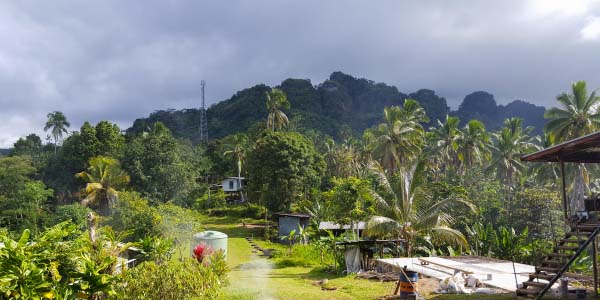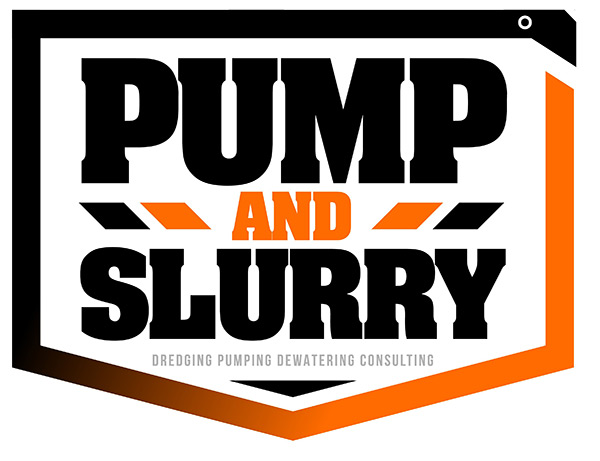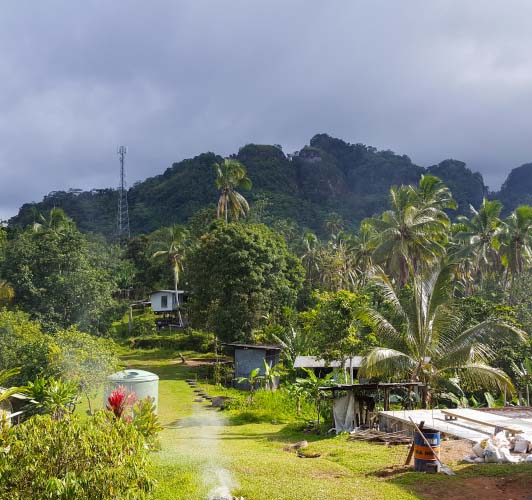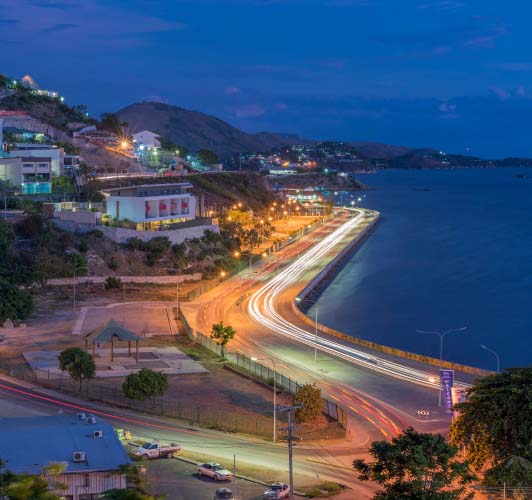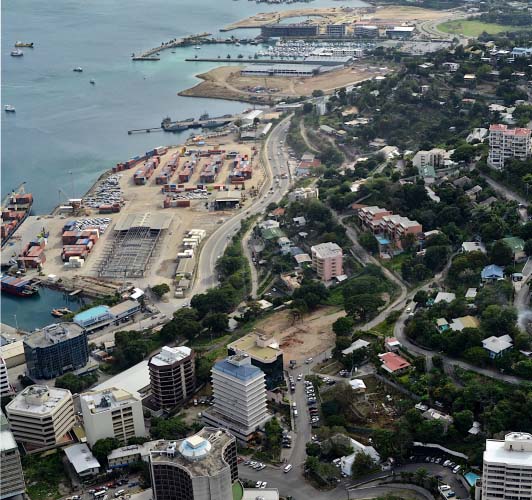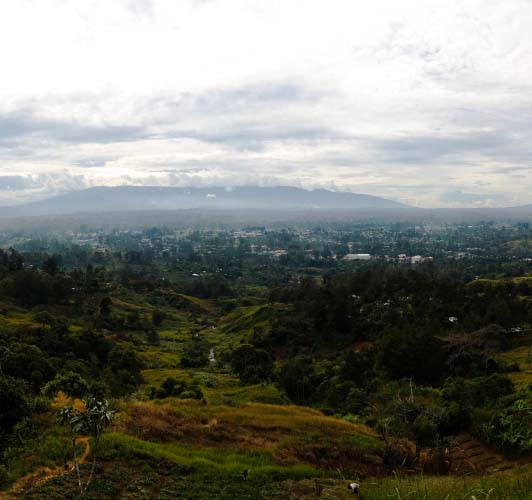Pumping and Dredging Project Consultation in Papua New Guinea | Pump and Slurry
Papua New Guinea boasts a diverse industrial landscape, with key sectors including oil and gas, mining, palm oil processing, plywood and wood chip production, construction, tourism, fishing, livestock and dairy farming, and spice products. The significance of pumping, dredging, and dewatering services within these industries cannot be overstated. In oil and gas extraction, pumping systems are vital for transporting crude and natural gas from wells to processing facilities. At the same time, dredging operations facilitate access to offshore drilling sites and maintain navigable channels for marine vessels. In mining, these services are indispensable for extracting minerals and ores from beneath the earth’s surface and managing water inflows to prevent flooding. Moreover, in palm oil processing and plywood production, efficient dewatering processes are essential for separating liquids from solid materials, ensuring product quality, and optimizing production output. Pumping, dredging, and dewatering services are critical in supporting Papua New Guinea’s diverse industries, enabling efficient operations and sustainable growth.
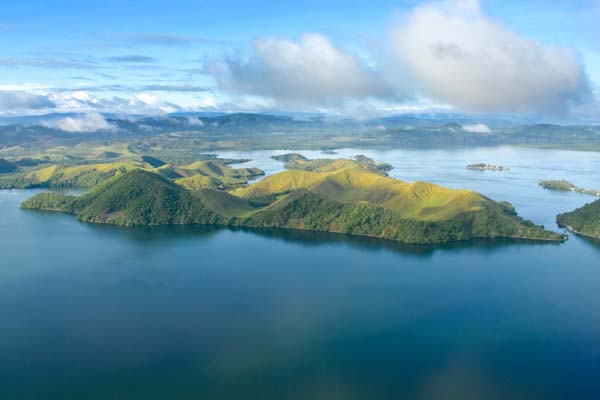
Pumping and Dredging Project Consultation in Papua New Guinea
Pumping and dredging projects in Papua New Guinea are paramount due to the country’s rich natural resources and extensive coastline. Slurry pumping and dredging projects are crucial in various industries, such as mining, oil and gas, and marine construction. In mining operations, slurry pumping is essential for transporting minerals, ores, and waste materials, while dredging projects are indispensable for extracting valuable resources from underwater deposits. Additionally, in coastal areas, dredging facilitates the maintenance of navigable waterways and the protection of shoreline infrastructure against erosion and sedimentation. These projects support economic development and contribute to environmental sustainability by mitigating sedimentation impacts and ensuring the efficient use of water resources.
The sales and rentals of slurry pumps and dredging equipment in Papua New Guinea are vital for supporting the diverse needs of pumping and dredging projects across the country. With a burgeoning industrial sector encompassing mining, oil and gas, agriculture, and construction, there is a growing demand for high-quality pumping and dredging equipment to meet project requirements. Sales and rentals provide businesses access to specialized equipment tailored to their applications, enabling efficient and cost-effective project execution. Moreover, a wide range of equipment options ensures flexibility and scalability, allowing companies to adapt to changing project demands and environmental conditions. By facilitating the acquisition and utilization of essential equipment, sales and rentals play a crucial role in driving the success of pumping and dredging projects in Papua New Guinea, contributing to economic growth and infrastructure development.
Our Services
Consulting Services
Pumping & Slurry Transport
Dredging Consulting
Dewatering
Equipment Sales & Rentals
Equipment Rental
Equipment for Sale
Customization Services
Industries in Papua New Guinea Requiring Slurry Pumping, Dredging, and Dewatering
Oil and Gas
For several reasons, efficient pumping, dredging, and dewatering are essential in Papua New Guinea’s oil and gas industry. Firstly, pumping systems are critical for transporting crude oil and natural gas from extraction sites to processing facilities or distribution points. Dredging operations are necessary to maintain access to offshore drilling platforms and ensure the safety of marine vessels navigating coastal waters. Additionally, dewatering is crucial for managing water influxes during drilling operations and preventing flooding in oil and gas infrastructure, such as well pads and processing plants.
Mining
In Papua New Guinea’s mining industry, efficient pumping, dredging, and dewatering are indispensable for extracting minerals and ores from beneath the earth’s surface. Pumping systems remove groundwater from mine shafts and pits, allowing for safe and efficient excavation. Dredging is often employed in mining operations to extract valuable minerals from underwater deposits or clear sediment from waterways for transportation. Dewatering is crucial in controlling groundwater levels to prevent flooding in mine workings and to facilitate the separation of minerals from slurry during processing.
Palm Oil Processing
Efficient pumping and dewatering are vital in Papua New Guinea’s palm oil processing industry to facilitate the movement of palm oil and wastewater within processing plants. Pumping systems transfer crude palm oil from extraction processes to refining and packaging facilities. Additionally, dewatering processes separate water from palm oil mill effluent, allowing for the proper disposal or treatment of wastewater and the recovery of valuable by-products.
Plywood and Wood Chip Production
In the plywood and wood chip production industry, efficient pumping and dewatering are essential for processing timber into finished products. Pumping systems transport water and chemicals during various stages of wood processing, such as soaking, steaming, and pressing. Dewatering equipment removes excess moisture from wood chips or veneers before they are used to manufacture plywood, ensuring product quality and dimensional stability.
Construction
Efficient pumping, dredging, and dewatering are critical in the construction industry of Papua New Guinea for various applications. Pumping systems transfer water, concrete, and other construction materials to job sites, enabling timely and cost-effective project execution. Dredging operations may be necessary to clear water bodies or excavate underwater foundations for infrastructure projects such as bridges, ports, and waterfront developments. Dewatering is essential for groundwater control during excavation and foundation construction, preventing water ingress and ensuring the stability of structures.
Tourism
Efficient pumping, dredging, and dewatering are essential in Papua New Guinea’s tourism industry to maintain the natural beauty and accessibility of tourist destinations. Pumping systems are utilized for water supply and wastewater management in hotels, resorts, and recreational facilities, ensuring the comfort and safety of visitors. Dredging operations may be required to remove sediment and debris from beaches, harbors, and coral reefs, enhancing coastal areas’ aesthetics and ecological value. Dewatering is essential for controlling water levels in wetlands, rivers, and lakes to preserve tourist habitats and recreational opportunities.
Fishing
In the fishing industry of Papua New Guinea, efficient pumping, dredging, and dewatering are crucial for supporting aquaculture and commercial fishing activities. Pumping systems circulate water in aquaculture operations, aerate fish ponds, and transport harvested seafood to processing facilities. Dredging may be necessary to maintain navigable channels for fishing vessels or to remove debris and obstructions from harbors and marinas. Dewatering equipment removes excess water from fishing boats and storage facilities, preserving the quality and freshness of seafood products.
Livestock and Dairy Farming
Efficient pumping and dewatering are essential in Papua New Guinea’s livestock and dairy farming industry to ensure the health and productivity of animals and the efficient operation of agricultural facilities. Pumping systems are utilized for water supply, irrigation, and livestock watering, supporting animal hydration and pasture management. Dewatering is essential for controlling runoff and managing waterlogged farm areas, preventing soil erosion, and promoting optimal growing conditions for forage crops. Additionally, dewatering equipment may remove excess moisture from dairy products during processing and packaging, extending shelf life and enhancing product quality.
Spice Products
In Papua New Guinea’s spice products industry, efficient pumping and dewatering are critical for processing and preserving spices and herbs. Pumping systems transfer water, steam, and processing fluids during spice production and packaging, ensuring product consistency and quality. Dewatering equipment removes moisture from freshly harvested spices or herbs before drying or processing, preventing mold growth and spoilage. Additionally, dewatering may be necessary for wastewater management in spice processing facilities, reducing environmental impacts and ensuring compliance with regulatory requirements.
Our Presence in the Country
Conclusion
In Papua New Guinea, the industries heavily rely on the efficiency of pumping and dredging projects, spanning sectors such as oil and gas, mining, agriculture, construction, tourism, and fisheries. These projects are fundamental for ensuring the seamless transportation of resources in oil and gas extraction, maintaining access to offshore sites, and managing water levels in mining operations. Similarly, in agriculture, particularly in palm oil processing and spice production, efficient pumping and dewatering processes are crucial for product quality and operational efficiency. In forestry, pumping and dewatering technologies play vital roles in wood processing stages. The construction industry benefits from these projects for material transportation and water level control, while tourism depends on them for preserving natural beauty. In fisheries, pumping and dredging activities are essential for maintaining water quality and facilitating seafood transportation. Recognizing their multifaceted importance, continual investment and innovation in pumping and dredging infrastructure are imperative for sustaining Papua New Guinea’s industries, ensuring their resilience and adaptability while safeguarding the environment for future generations.
